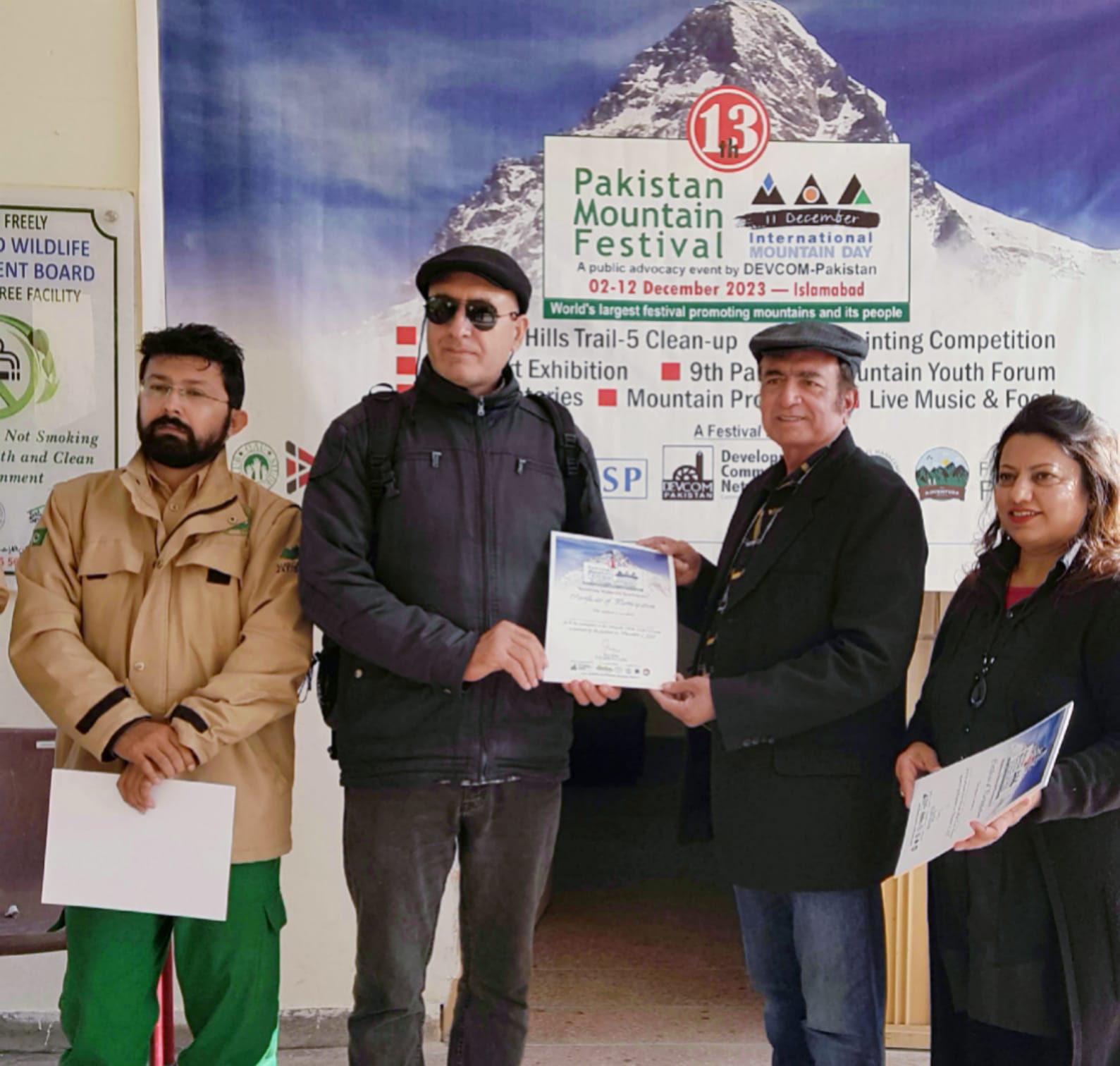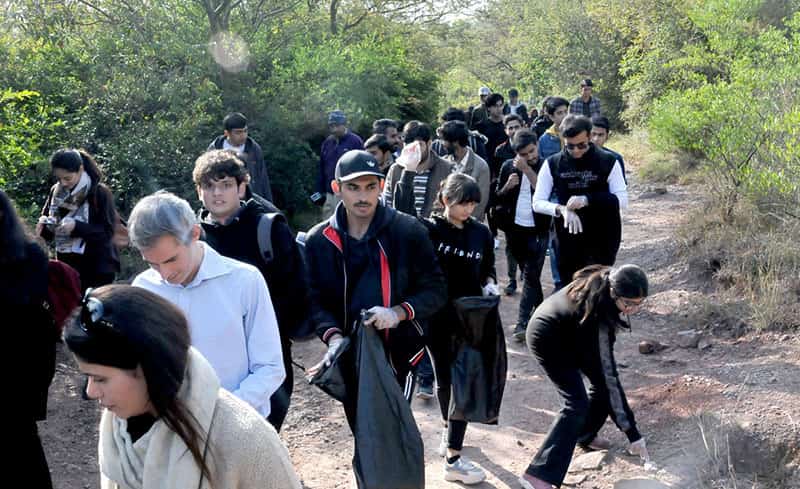Young Adventurers Take Charge in Margalla Hills Cleanup
Shazia Mehboob
Islamabad: Biodiversity is essential for the processes that support all life on Earth, including humans. Without a wide range of animals, plants, and microorganisms, we cannot have the healthy ecosystems that we rely on to provide us with the air we breathe and the food we eat.
Devcom-Pakistan Executive Director and founder of the Pakistan Mountain Festival, Munir Ahmed, shared these views during an interview with Penpk.com on Sunday.
Mountains are the rich hub of a variety of species dependent on each other to complete a cycle of biodiversity, which is a must for a healthy ecosystem. The undue human interventions and carbon footprint have destroyed the biodiversity cycle, which has had a severe impact on the ecosystem, added Devcom-Pakistan Ahmed.
“We have to behave rationally to conserve 27 percent of the mountain habitats for the well-being of the entire planet,” Munir Ahmed stressed. Pakistan Mountain Festival: Young Kikers Cleanup Margalla Hills Trail-5
Pakistan Mountain Festival: Young Kikers Cleanup Margalla Hills Trail-5
According to details, more than one hundred university students and nature lovers participated in the hiking and cleanup drive at Margalla Hills Train-5 after an interactive session on wildlife and the biological diversity of the Margalla Hills on Saturday.
The event was organised by the Development Communications Network (Devcom-Pakistan), DTN, and Islamabad Wildlife Management Board (IWMB) in collaboration with the Comsats University Islamabad Campus Computer Science Adventure Society (CSAS).
The Pakistan Mountain Festival (PMF) is an annual flagship event of Devcom Pakistan to commemorate the UN’s International Mountain Day (IMD) that falls on December 11.
Munir Ahmed further said the Margalla Hills National Park is increasingly becoming a focus of visitors and illegal construction. Solid waste management and littering have increased manifold despite many interventions by the IWMB and civil society organizations.
Mountain resources are the lifeline of over 80% of the people living downstream, who are responsible for heavy carbon emissions and the devastation of mountain ecosystems: Munir Ahmed
The environmentally unfriendly practices have damaged the natural resources in all three parts of the National Park, including the hills, Rawal Lake, and Sharkarparian, despite many initiatives, Munir Ahmed added.
Mountain resources are the lifeline of over 80 percent of the people living downstream, who are responsible for heavy carbon emissions and the devastation of mountain ecosystems.
Ahmed said we shall encourage youth to engage in environmentally friendly outdoor pursuits. It is good for their mental and physical health, besides making them responsible visitors to nature. Several youth engagements are in the pipeline for the 13th Pakistan Mountain Festival, including the 9th Pakistan Mountain Youth Forum, cultural shows, and a conference.
“We need to work out a joint action plan for the promotion of mountains and their communities, culture, art, and heritage instead of individual and scattered efforts, the environmentalist added. Pakistan Mountain Festival: Young Kikers Cleanup Margalla Hills Trail-5: Munir Ahmed
Pakistan Mountain Festival: Young Kikers Cleanup Margalla Hills Trail-5: Munir Ahmed
The IWMB Deputy Director briefed the participants about the rich biodiversity of the Margalla Hills National Park, which was established in 1980. It is the third-largest national park in the world, with an area of 17,386 hectares (42,960 acres) under the foothills of the Himalaya.
In the recent decade, its importance was realised after seeing the impact of unwanted haphazard construction and movement of vehicles more than its carrying capacity. Many initiatives have been taken so far to protect the wildlife and biological diversity, including raising awareness among the communities living in the habitats.
Margalla Hills National Park is the third-largest national park in the world, with an area of 17,386 hectares (42,960 acres) under the foothills of the Himalaya. IWMB Deputy Director
He urged the youth to respect the diversity of species and help manage wildlife while human beings live together. The park is rich in biodiversity, especially in Sino-Himalayan fauna, most notably grey goral, barking deer, and the leopard. Combined, MHNP is home to around 600 plant species, 402 bird varieties, 38 mammals, and 27 species of reptiles.
The IWMB Deputy Director said under the new management recently, the IWMB has taken many steps for the protection of the park and visitors. Many cases of woodcutting and forest fires were averted. The renovated IWMB nature education centres are the hub of activities, awareness-raising sessions, and community engagement.
Combined, MHNP is home to around 600 plant species, 402 bird varieties, 38 mammals, and 27 species of reptiles: IWMB Deputy Director
Zamina Khan, a participant in the mountain cleanup, was of the view that it is quite healthy to go into nature. We continued the tradition of picking up trash from the mountain trail and setting an example for those who do not care for the environment. Such activities shall continue, and we need to observe respect for nature, a habitat for thousands of living creatures. It is also a source of many essentials for human life as well.

Comments are closed.